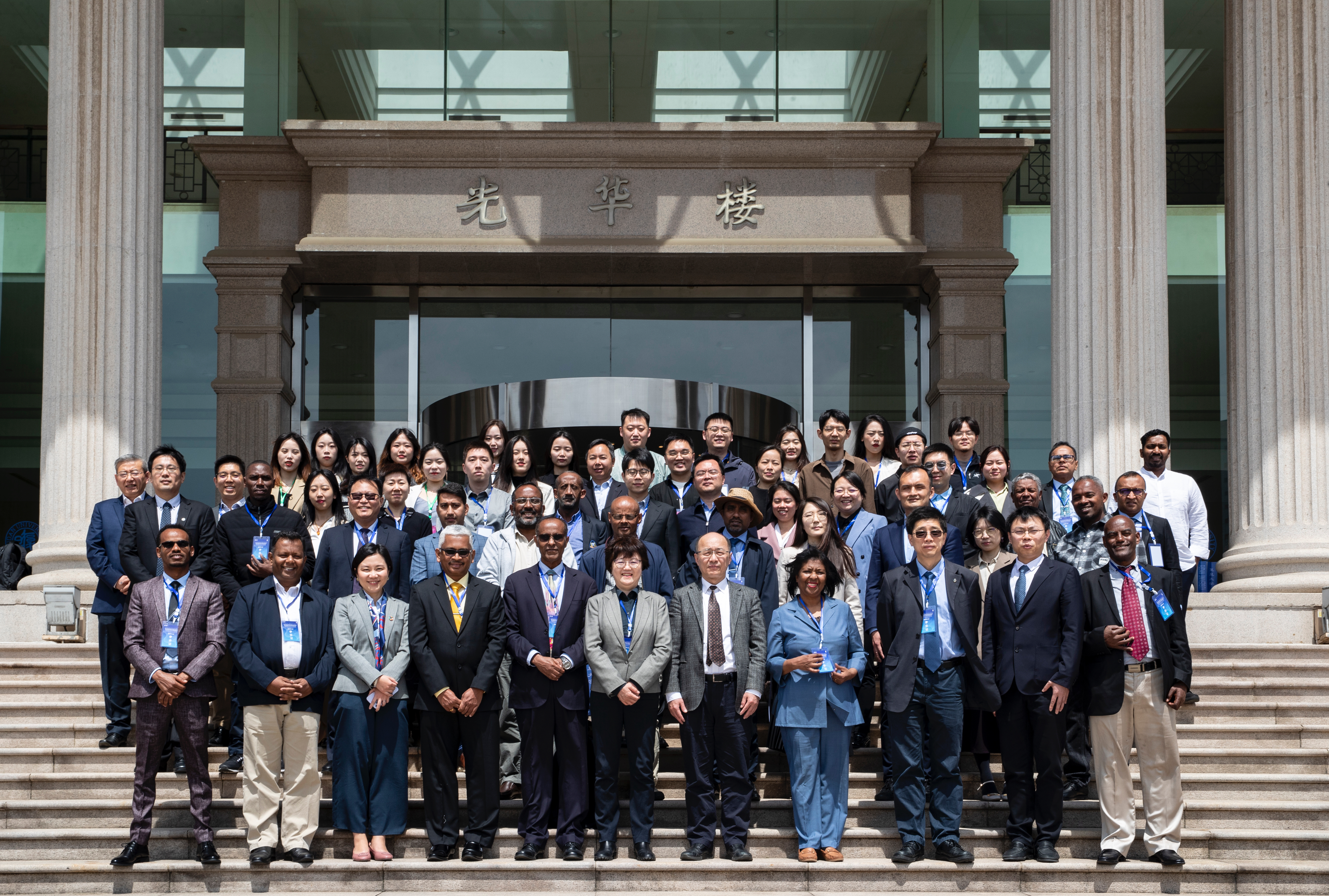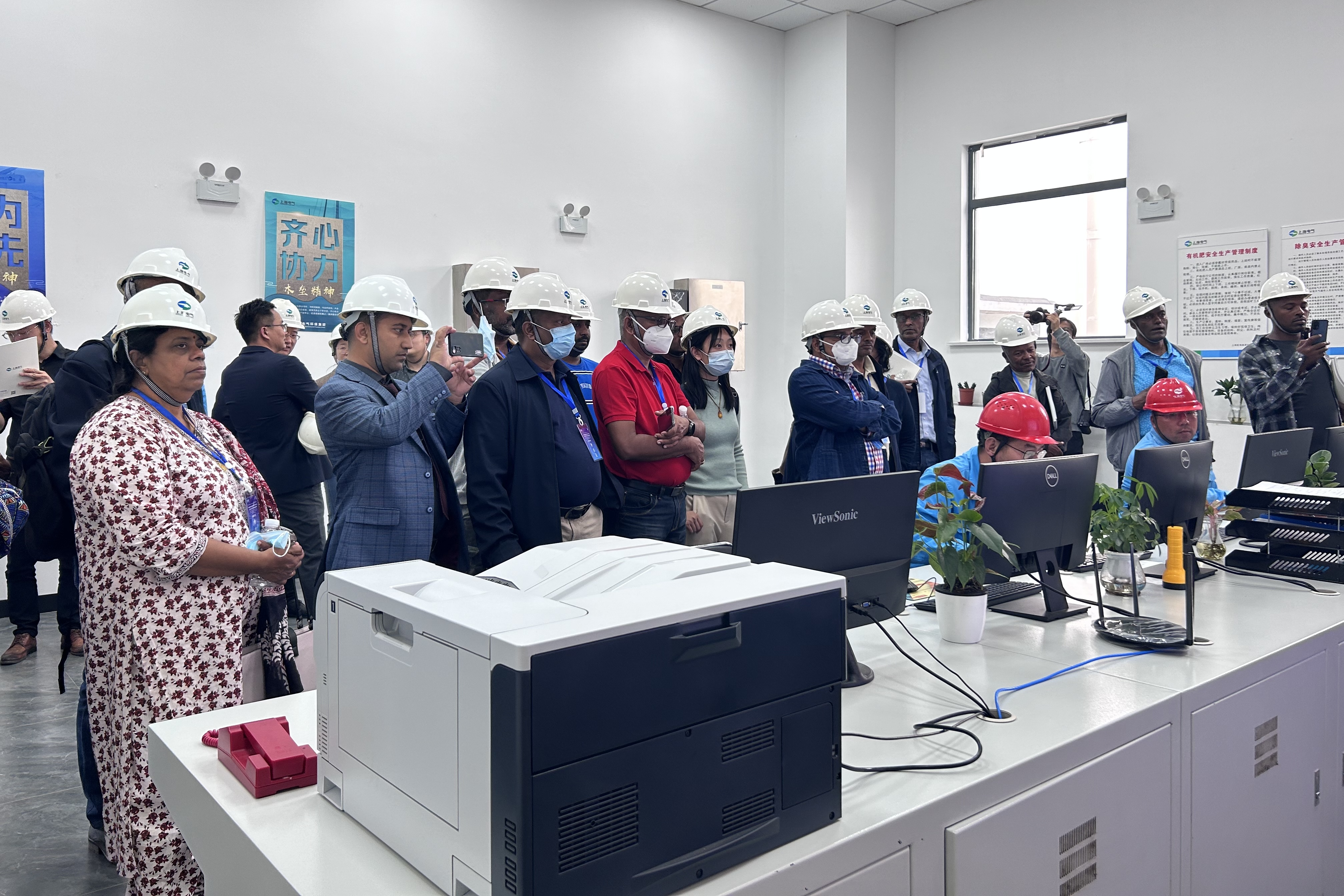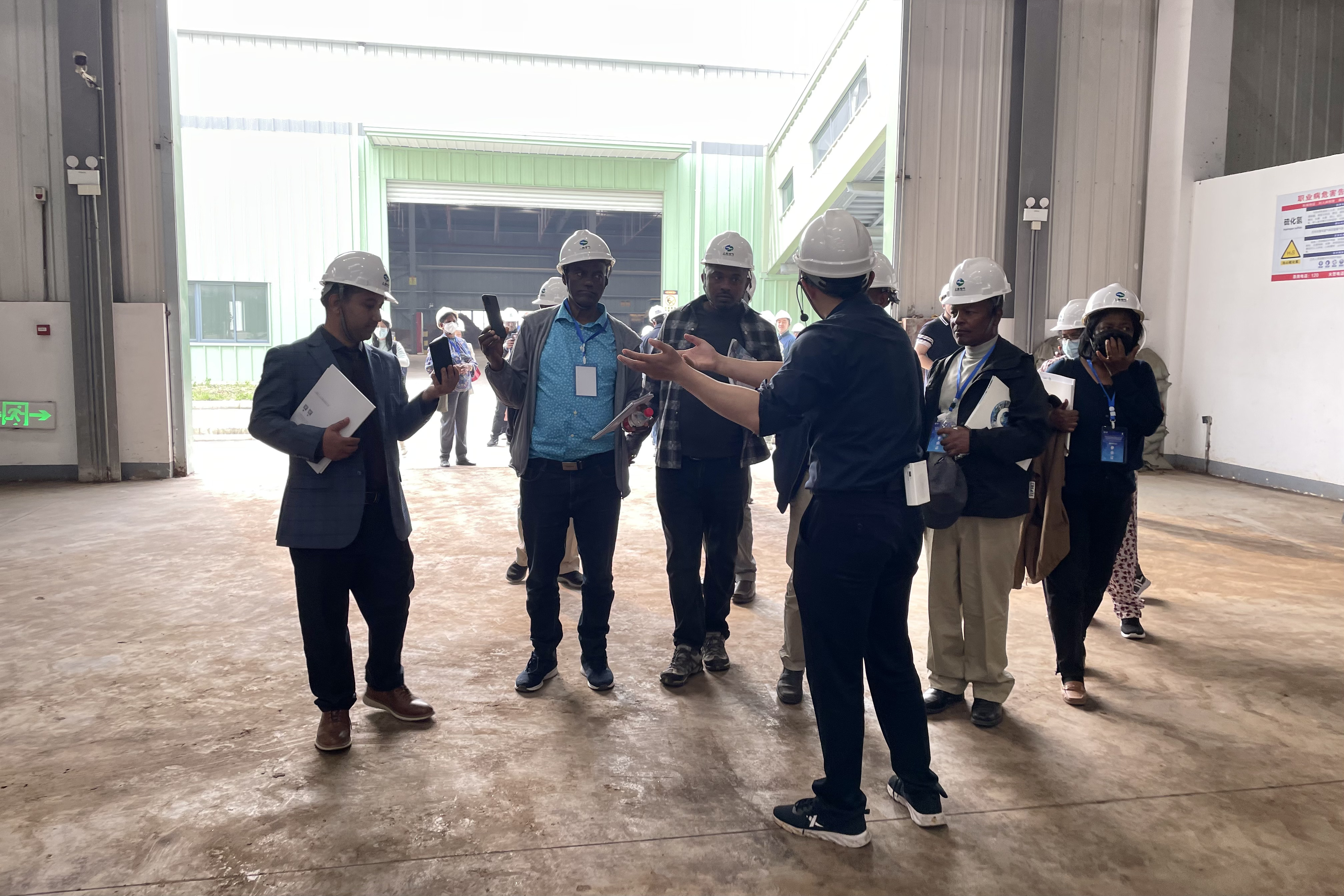Workshop for Advancing Renewable Energy Technology Transfer and Knowledge Exchanges towards the 2030 Agenda for Sustainable Development
April 13, 2023

Group photo from the workshop on advancing renewable energy technology transfer in Shanghai
12 April 2023, Shanghai - A three-day workshop bringing together participants from China, Ethiopia and Sri Lanka to discuss renewable energy solutions, and low-carbon development, successfully concluded today in Shanghai.
The event, held from 9-12 April, was an activity under the Biogas, Biomass and Solar Trilateral Cooperation Project implemented by UNDP in partnership with the governments of China, Ethiopia and Sri Lanka. It was organized by the Administrative Center for China’s Agenda 21 (ACCA21), under the guidance China’s Ministry of Commerce (MOFCOM), Ministry of Science and Technology (MOST), Ministry of Water and Energy of Ethiopia (MOWE), and Sri Lanka Sustainable Energy Authority (SLSEA), with technical support from Fudan University (FDU) and the China Agricultural University (CAU).
Themed “Advancing Renewable Energy Technology Transfer and Knowledge Exchanges towards the 2030 Agenda for Sustainable Development”, the workshop was the first in-person sharing session under the Project in over three years.
The workshop created mutual learning opportunities for key stakeholders regarding sustainable renewable energy options and pathways, as well as relevant technologies in advancing the low-carbon transition and Sustainable Development Goals (SDGs) on the ground.

A study tour group at a demonstration site in Chongming, Shanghai
Around 50 participants from MOFCOM, MOST-ACCA21, SLSEA, Sri Lanka Provincial Councils, MOWE, Ministry of Finance of Ethiopia, UNDP China, Ethiopia and Sri Lanka, Fudan University, Wolaita Sodo University, CAU and FDU participated in the workshop.
“The project is a perfect example of how South-South and Trilateral Cooperation can be a powerful vehicle to help accelerate the SDGs,” UNDP Deputy Resident Representative in China, James George, stated in his opening remarks. “Sharing experiences and insights among countries of the Global South helps us identify and co-design solutions that best suit local development needs and contexts.”
Mr. Huang Jing, Director General of MOST-ACCA21, noted[CS3] , “The project is highly recognized by UNDP and the Government of China. It has been selected as a good practice in South-South and Triangular Cooperation in Least Developed Countries, which is the best reward for all sides’ hard-work during the past several years.”
Ms. Wang Rongfang, emphasized, “through the last three years’ implementation, the trilateral cooperation model has been tested [and shown to be] feasible and the technology transfer platform developed has been widely recognized by both China and our South-South cooperation partners.”
Mr. Vimal Nadeera, Deputy Director General of SLSEA, stated, “I’m happy that this Trilateral South-South Cooperation project has been supporting the energy programmes of five provinces… among which key renewable energy development programmes are being implemented particularly the measures for resource development and technology development being piloted pertinent to different renewable energy sources.”
“The successful implementation of the Project will benefit more than 10,000 households in rural areas and promote investment in renewable energy technologies and scaleup for climate-resilient growth in Ethiopia, “ stated Mr. Gosaye Mengistie Abayneh, Senior Energy Advisor of MOWE. “Looking into the future… we have to think ahead and work very hard to scale up the trilateral initiative in much larger scale targeting mutually beneficial cooperation and socio- economic transformation of our rural communities.”

A study tour to a demonstration site of solar, biogas and biomass technologies in Chongming, Shanghai
During the knowledge sharing sessions, participants exchanged perspectives on each other’s renewable energy practices, national priorities, and plans for the future trajectory of advancing the low-carbon transition.
On the second day of the event, participants visited two demonstration sites of solar, biogas and biomass technologies. The sites demonstrated the successful application of various technologies in the areas of fishery, and agricultural waste recycling.
Takeaways from the three-day event are expected to feed into concrete technological solutions that advance the low-carbon transition, especially through South-South and Triangular Cooperation.
The Biogas, Biomass, and Solar Trilateral Cooperation Project facilitates two-way exchanges of expertise and technologies, as well as mutual learning among China, Ethiopia and Sri Lanka. The Project contributes to Goal 7 (Affordable and Clean Energy), Goal 13 (Climate Action) and Goal 17 (Partnerships for the Goals), as well as Goal 5 (Gender Equality).
For more information, please see:
https://www.undp.org/china/projects/mofcom-undp-trilateral-cooperation-renewable-energy-ethiopia and https://www.undp.org/china/projects/mofcom-undp-trilateral-cooperation-renewable-energy-sri-lanka.

 Locations
Locations


